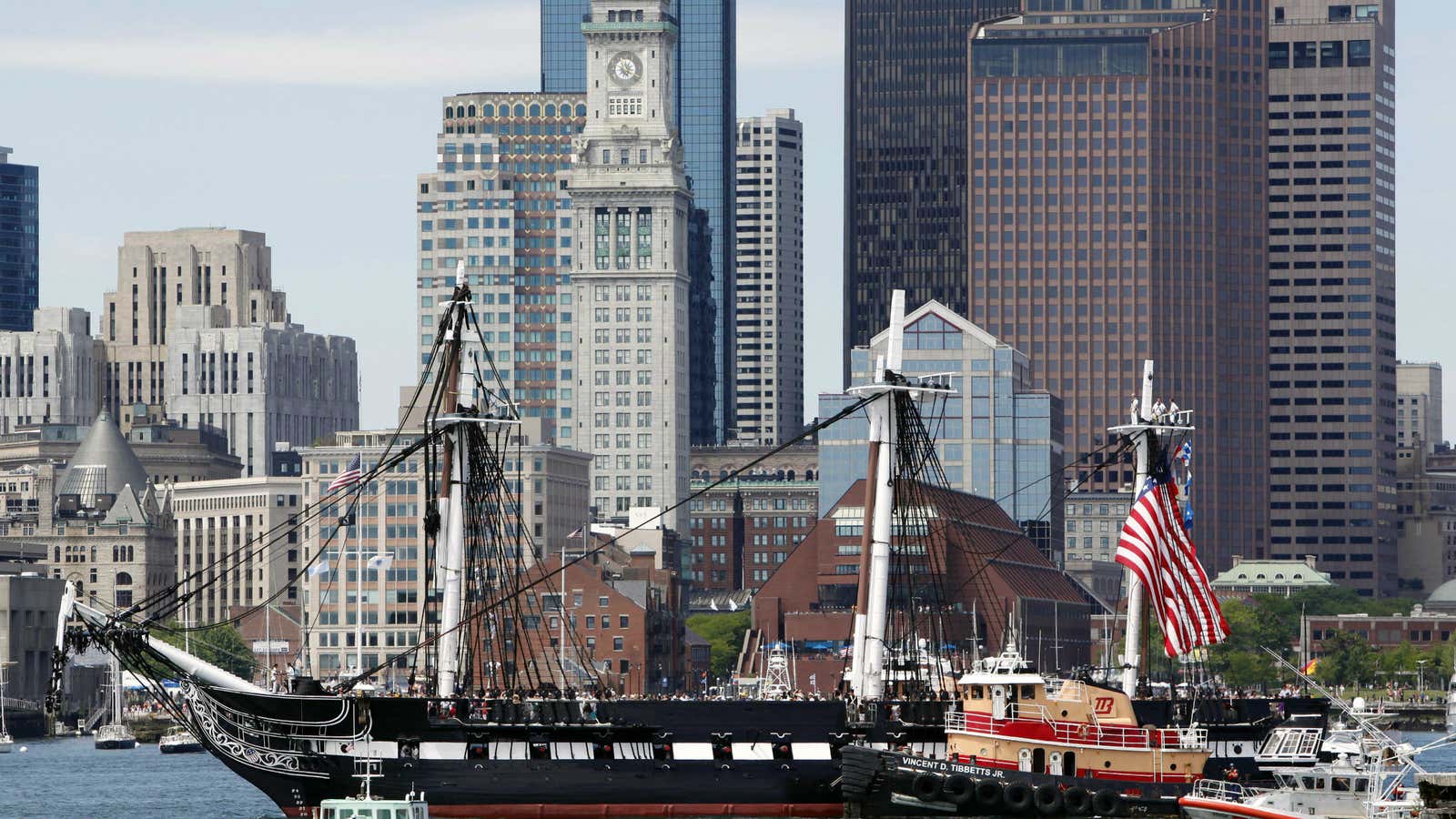Chinese students from wealthy families have been pouring into American colleges in record numbers. One of their favorite American destinations is metropolitan Boston and its many elite schools—especially Harvard University, home to the progeny of Communist Party leaders like president Xi Jinping, Jiang Zemin, and the now-disgraced Bo Xilai.
An article in the January issue of the Chinese-language edition of GQ praises the influence of Chinese “Bostonian” alumni, but has inspired derision on social media for the way that it has idealized the city, and its implication that the city’s college graduates are building the future of China.
The article’s Chinese author, international student Shen Danqi, writes, “The young Chinese people graduating from Boston’s top-notch schools will make an impact on their motherland 20 years from now.” After all:
There’s no other place in the world like Boston, where so many top-notch US college are aggregated…Harvard, MIT, Brandeis, Babson—and also the largest density of Chinese international students. They are the sons and daughters of the privileged class, the middle-class or even from poorer families. But in Boston, they are equal, temporarily.
Shen, a graduate of Harvard’s Kennedy School of Government, is particularly hopeful about the entrepreneurs coming from the area’s schools:
- Yang Linfeng an Eton College and Harvard University graduate and former associate with the Boston Consulting Group. Yang started Sunshine Library, an NGO that wants to bring “tablet-based learning” to rural China by distributing free tablets to thousands of schools.
- Ping Chuan, a Boston University graduate. He started a global pro-development group for young Chinese and took a gap year to start a school in Shanghai. Fujen Summer School is designed to prepare Chinese students for the US’s Ivy League colleges, and features Ivy League professors, including Richard Billows, Columbia University’s dean of History and Harvard professor of literature Matthew Kaiser.
- Liu Xiao, a Babson College MBA graduate. He started a kebab-truck that plies the Boston streets, selling lamb kebabs, Chinese “meat sandwiches” and cold noodles.
Many of the rest of China’s over 200,000 students now going to school the United States were not impressed. As one reader on Zhihu, the Quora-like Chinese Q&A site, grumbled:
The labeling ‘Bostonian’ is questionable. Bostonian is merely a descriptive and neutral word, but the categorization in this article makes the word superior and conveys a tone of moral judgement.
On Renren, a Facebook-like social media site, Feng Chucheng, a political science student at UC Berkeley, complained that it was misleading and shallow to equate Boston with idealism and entrepreneurship:
The fact that “Bostonian” is published on GQ actually says something about this article, it’s written to target those people who love to define their lives by labels and occasionally put on the pretense of idealism.
It may be hard to find anyone in the city of Boston to refute the GQ’s article’s premise. Encouraging entrepreneurs, after all, is part of Boston’s growth strategy for 2014.
